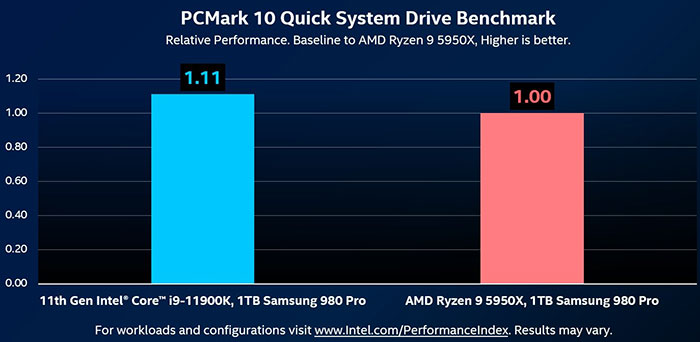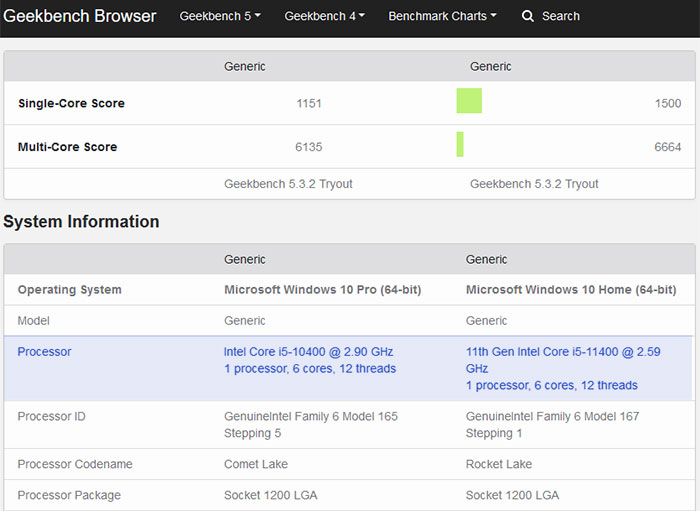Intel Rocket Lake storage performance
Intel's Ryan Shrout, the firm's Chief Performance Strategist, has taken to Twitter to share a sneak peek of the Intel Core i9-11900K's PCIe Gen 4 storage performance. Of course, he wouldn't be doing this if there wasn't something to boast about and a like-for-like benchmark run vs a system packing an AMD Ryzen 9 5950X shows the Intel system in a favourable light.
Shrout's hand-picked test is the PCMark 10 Quick System Drive benchmark. In this test he says the Intel Rocket Lake chip is 11 per cent faster than the AMD consumer flagship processor – a worthwhile improvement, some would say.

A link provided by Shrout details the specs of both the Intel and AMD PC systems. Various folk pointed out a lack of detail about how the SSDs attached to the respective systems, so the Intel Chief Performance Strategist had to reply to clear up this query, asserting that both systems used the 1TB Samsung 980 Pro installed on an x16 PCI riser card.
Thanks to the anonymous HEXUS tipster for the Tweet link.
Intel Core i5-11400 single thread performance uplift
Twitter's BenchLeaks has uncovered what appears to be a Geekbench 5 run on an Intel Core i5-11400 (6C/12T) processor. The new mid-range GKL chip scores 1500 in the 1T test and 6664 in the nT tests.
BenchLeaks compares those scores against the AMR Ryzen 7 5800X, against which the new Intel chip fares quite poorly. However, perhaps a better comparison might be against the previous gen Intel Core i5-10400, which shows a significant intergenerational improvement from Comet Lake to Rocket Lake. In this comparison the new RKL i5 CPU was 24 per cent faster in 1T tests and 8 per cent faster in nT Geekbench tests.

The RKL-S uplift is definitely a good sign for IPC, as the new Core i5-11400 only has a 100MHz faster boost clock than its predecessor. Please remember to take these leaked benchmarks with a larger pinch of salt than Intel PR ones.






